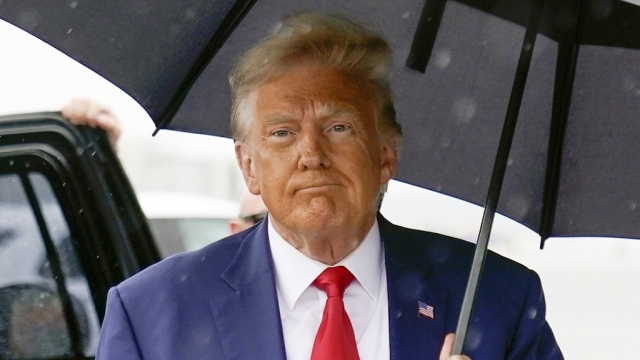While cameras are generally prohibited from federal courts, Georgia courtrooms are much more open with cameras.
With former President Donald Trump facing four different indictments, two of which are in federal courts, his recent charges stemming from alleged election interference in Georgia might be the public's best opportunity to watch criminal proceedings against Trump. Late Monday, the public was able to watch live the grand jury's indictment being handed over to a judge.
Trump and 18 others were indictedMonday on charges they interfered in the 2020 presidential election in Georgia. Prosecutor Fani Willis hopes to try all 19 defendants within the next six months.
While Trump has yet to face an arraignment in the Georgia case, in the two federal cases and the one case being tried in Manhattan, his arraignments were not televised. And the two federal cases have not allowed electronics into the courtroom.
SEE MORE: Justified or unfair? What Americans think about Trump's indictments
Georgia's Rule 22 outlines guidelines for allowing cameras and recording devices in courtrooms.
"Open courtrooms are an indispensable element of an effective and respected judicial system. It is the policy of Georgia’s courts to promote access to and understanding of court proceedings not only by the participants in them but also by the general public and by news media who will report on the proceedings to the public," the rule states.
Caren Morrison, an associate professor of law at Georgia State University, says courtrooms are supposed to be open to the public.
"It's an important sort of constitutional, like a First Amendment right of the public, to understand the operation of government," she said. "So that's a foundational principle. So, that means that if it were a regular case and you wanted to see what was going on, you should have the right, any normal citizen has the right to walk into any trial."
"Georgia's view so far has been that television or at least, you know, streaming services or what have you, is an important part of open access to the courts because not everybody lives in Atlanta," she added. There's a limited amount of space in the courtroom, and therefore in order for the public to really watch government in operation — and the justice system is a branch of government — they need to have access to it."
Morrison said there are some limits to when cameras would be allowed. But she added a case like the one against Trump is why the rule was made in the first place.
SEE MORE: Atlanta court explains 'mishap,' release of 'fictitious' Trump filing
"It's a very liberal rule and the presumption would be that the judge would grant it unless there are serious reasons not to," she said. "And I think in this case, given the public interest in the case, given how this is about as close as you get to a case about the fundamental functions of government, you know: Should there be a peaceful transfer of power? How do you know, should elections really be based on the voters or on the will of an individual who does not want to let go?
"And to see whether the allegations against the president can be proven is I think is going to mean that the case will be televised — may be finally a trial, a televised trial in this country that rivals O.J. back in the '90s."
Trending stories at Scrippsnews.com



